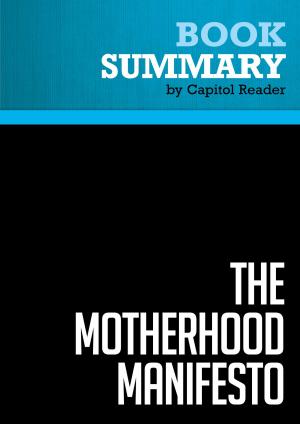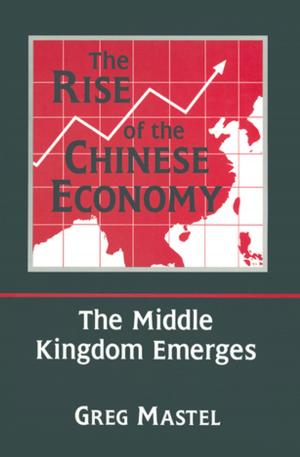Alternative Economics: Reversing Stagnation
Business & Finance, Economics, Macroeconomics, Nonfiction, Social & Cultural Studies, Political Science| Author: | Marc Batko | ISBN: | 9781310839924 |
| Publisher: | Marc Batko | Publication: | February 22, 2016 |
| Imprint: | Smashwords Edition | Language: | English |
| Author: | Marc Batko |
| ISBN: | 9781310839924 |
| Publisher: | Marc Batko |
| Publication: | February 22, 2016 |
| Imprint: | Smashwords Edition |
| Language: | English |
The financial sector should be shriveled and the public sector expanded. The myths of self-healing markets, efficient financial markets, nature as a free good, external and sink, infinite growth in a finite world, quantitative growth and the exact sciences eclipsing qualitative growth and the human sciences (history, literature, play, language, sociology, political science, philosophy) and private opulence next to public squalor (cf. John Kenneth Galbraith) must call us to rethinking – individually and collectively.
Alternative Austrian, Swiss, Polish and German economists can alert us to the bankruptcy of austerity policy and fiscal policy aiding capital at the expense of workers and the environment. The future economic policy must be regional and decentralized. A post-materialist economy is possible as we transition from excess to access and more to enough. Work, health, strength, security and happiness can be redefined. The rights of nature can be respected in a future of moderation, equality and freedom.
More and more is produced with fewer and fewer workers. Work and income have uncoupled as people cannot survive on their earnings from work and depend on credits and loans. Reducing working hours is a response to increased productivity and is the only way to assure everyone of the right to meaningful work. Reducing working hours, as Michael Schwendinger explains, is a socio-economic investment that protects long-term health interests and gives people more time sovereignty
Here is an thumbnail outline of several alternative economists. Peter Ulrich is a Swiss economist. The economy must be embedded in society. Society must not be embedded in the economy. Ulrich Thielemann is a Swiss and German economist. Profit making is not profit maximizing. Studying economics today is like brainwashing. Tomasz Konicz is a Polish economist. The 30 year crisis is not an Obama crisis. Wages were stagnant for 35 years. Credit was expanded. Families worked 3 or 4 jobs. Health care, education and housing became unaffordable. The US became a black hole for the global economy.
Personal performance always depends on the work of past generations and state interventions. Americans fall to a new feudalism with the deserving and undeserving, fear-mongering and racism. Pragmatism or market religion often replaces vision, principle and courage. Confusing speculation and investment makes the next crisis inevitable. Wall Street banks spent $10 billion in campaign contribution and lobbying ensuring corruption, weak financial deregulation and shifting private losses to public taxpayers.
The financial sector should be shriveled and the public sector expanded. The myths of self-healing markets, efficient financial markets, nature as a free good, external and sink, infinite growth in a finite world, quantitative growth and the exact sciences eclipsing qualitative growth and the human sciences (history, literature, play, language, sociology, political science, philosophy) and private opulence next to public squalor (cf. John Kenneth Galbraith) must call us to rethinking – individually and collectively.
Alternative Austrian, Swiss, Polish and German economists can alert us to the bankruptcy of austerity policy and fiscal policy aiding capital at the expense of workers and the environment. The future economic policy must be regional and decentralized. A post-materialist economy is possible as we transition from excess to access and more to enough. Work, health, strength, security and happiness can be redefined. The rights of nature can be respected in a future of moderation, equality and freedom.
More and more is produced with fewer and fewer workers. Work and income have uncoupled as people cannot survive on their earnings from work and depend on credits and loans. Reducing working hours is a response to increased productivity and is the only way to assure everyone of the right to meaningful work. Reducing working hours, as Michael Schwendinger explains, is a socio-economic investment that protects long-term health interests and gives people more time sovereignty
Here is an thumbnail outline of several alternative economists. Peter Ulrich is a Swiss economist. The economy must be embedded in society. Society must not be embedded in the economy. Ulrich Thielemann is a Swiss and German economist. Profit making is not profit maximizing. Studying economics today is like brainwashing. Tomasz Konicz is a Polish economist. The 30 year crisis is not an Obama crisis. Wages were stagnant for 35 years. Credit was expanded. Families worked 3 or 4 jobs. Health care, education and housing became unaffordable. The US became a black hole for the global economy.
Personal performance always depends on the work of past generations and state interventions. Americans fall to a new feudalism with the deserving and undeserving, fear-mongering and racism. Pragmatism or market religion often replaces vision, principle and courage. Confusing speculation and investment makes the next crisis inevitable. Wall Street banks spent $10 billion in campaign contribution and lobbying ensuring corruption, weak financial deregulation and shifting private losses to public taxpayers.















